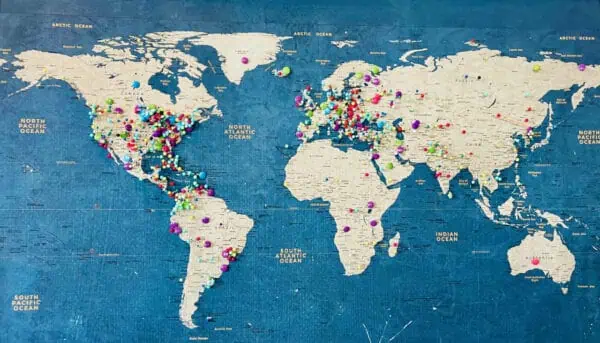The Cambridge Centre for Alternative Finance (CCAF), part of the University of Cambridge, has published its 3rd Global Fintech Regulator Survey. The document is being produced in partnership with the World Bank.
CCAF is widely recognized as the top independent research firm following the development of financial technology in all of its forms having published dozens of studies, including unique access to both government entities and private firms around the world.
According to the research, regulators worry about consumer protection but also recognize the benefits of Fintech – especially when it comes to underserved or unbanked populations.
The study incorporated responses from 128 financial authorities in 106 jurisdictions worldwide, with almost 70% of respondents overseeing Fintech developments in EMDEs.
CCAF reports that the survey is one of the largest empirical studies to date on the regulation and supervision of fintech aimed at financial authorities.
 Bryan Zhang, co-founder and Executive Director of the CCAF, commented on the newest research:
Bryan Zhang, co-founder and Executive Director of the CCAF, commented on the newest research:
“This comprehensive dataset offers a unique view into the world of Fintech regulators and their respective institutions at a time of rapid changes in digital financial services globally. We hope that the data and insights generated from this global survey will inform the work and practice of fintech regulators, supervisors and policymakers, help them benchmark responses, frameworks and activities, and facilitate meaningful peer learning and knowledge exchange.”
The COVID health crisis has fueled Fintech adoption as virtual work became the norm and social distancing was adopted in many jurisdictions. At the same time, financial technology is promoting financial inclusion.
The 3rd Global Fintech Regulator Survey aims to provide information that regulators can use to benchmark, evaluate and prioritize policy responses to Fintech developments. CCAF points to 56% of respondents from Emerging Markets Developing Economies (EMDEs) increasing the priority of Fintech, compared to 35% of respondents in advanced economies (AEs). CCAF states that this is most acutely observed in Sub-Saharan Africa, where 75% of respondents report an increase in Fintech prioritization.
While the benefits may be accepted, CCAF notes that financial authorities have “significant concerns” when it comes to both existing and emerging consumer risk. Top of the list of worries includes cybersecurity challenges (78% of respondents, frauds/scams (67% of respondents, up from 18% in the 2020 survey), and in the digital assets sector (or crypto assets).
Regtech and or Suptech (supervisory technology) are growing in importance as financial regulators look to mitigate risk from digital financial services. The CCAF survey highlights Digital Regulatory and Supervisory Infrastructure (DRSI).
Jean Pesme, Global Director, Finance, Competition & Innovation, The World Bank Group, commented:
“At the World Bank, we see a growing demand from client countries for data-driven assessment tools of risk in financial services. In addition to seeking insights into the management of persistent and emerging risks, the survey has also explored how and where regulatory authorities are using different types of digital infrastructures to enhance regulatory and supervisory functions. Understanding and mitigating risks is key – the survey and experience around the globe also demonstrate that this can be done while harnessing the tremendous potential of fintech for financial inclusion and access to finance.”
Sian Parkinson, Inclusive Digital Finance Lead, UK Foreign, Commonwealth, and Development Office, said the UK is proud to partner with CCAF and support its survey:
“The UK is committed to the development of FinTech domestically and internationally, supported by regulatory environments that enable innovation, as well as the protection of people and businesses. The report’s findings share valuable insights for the development of future policy and regulation, to ensure FinTech continues to increase its reach, safeguarding consumers, deepening domestic capital markets, and accelerating economic growth globally.”
Established in 2015, the CCAF has published 40 different research reports incorporating more than 5,000 Fintech firms in over 185 countries. CCAF reports that it has also collaborated with more than 120 regulatory authorities and central banks worldwide.
The CCAF 3rd Global Fintech Regulator Survey may be downloaded here.


